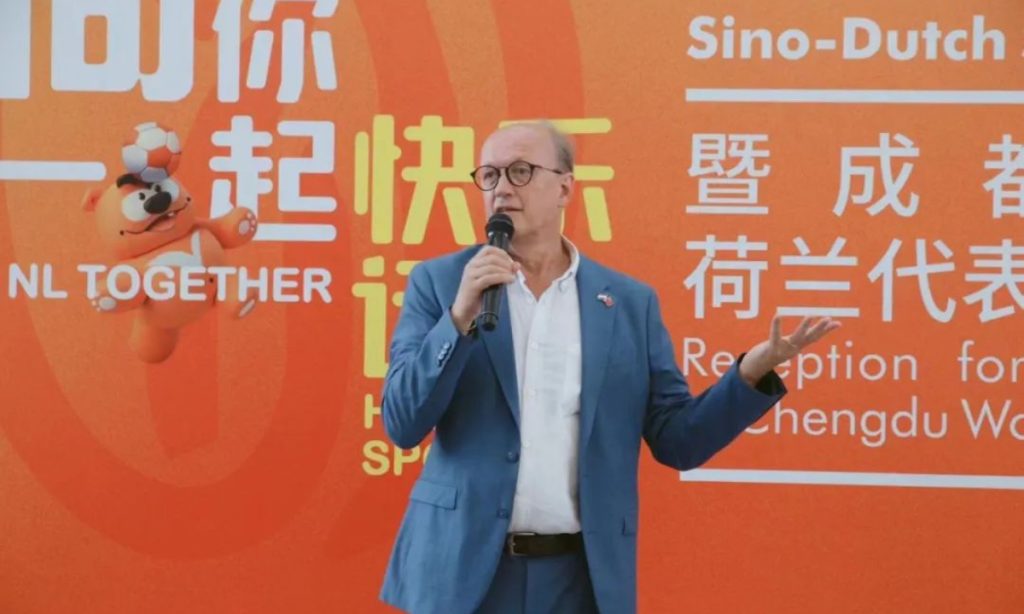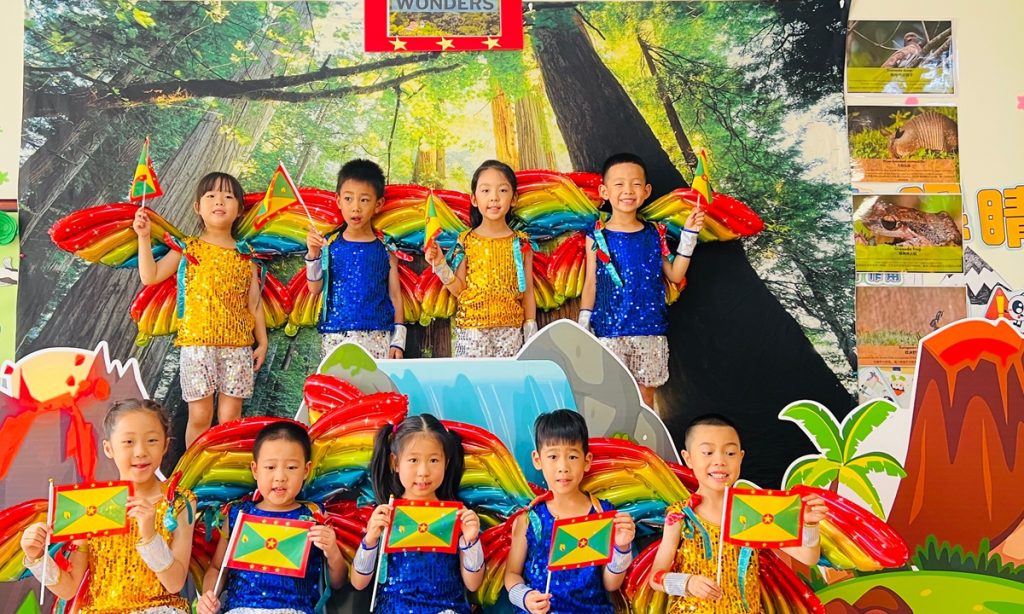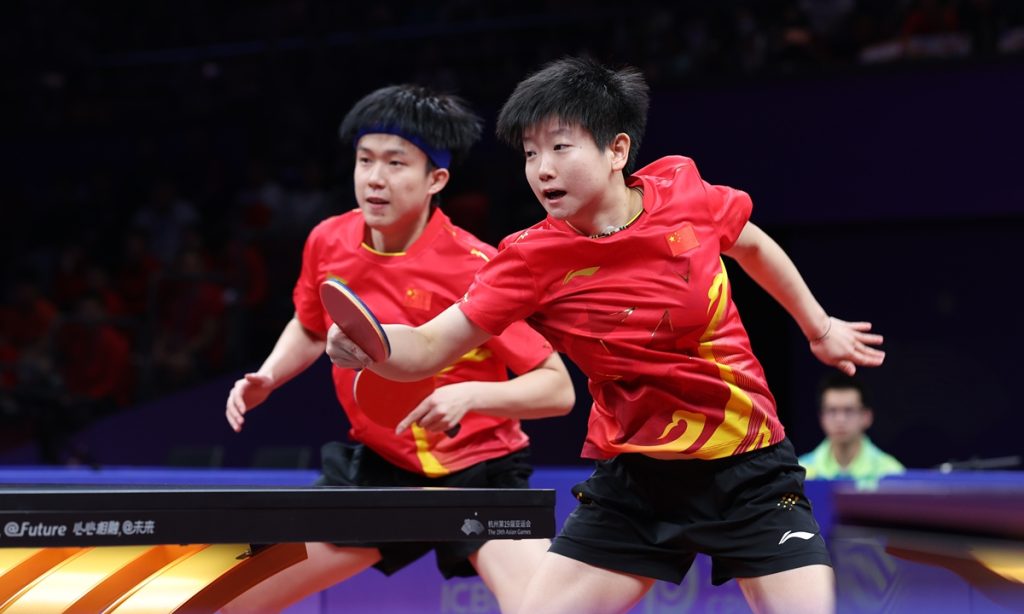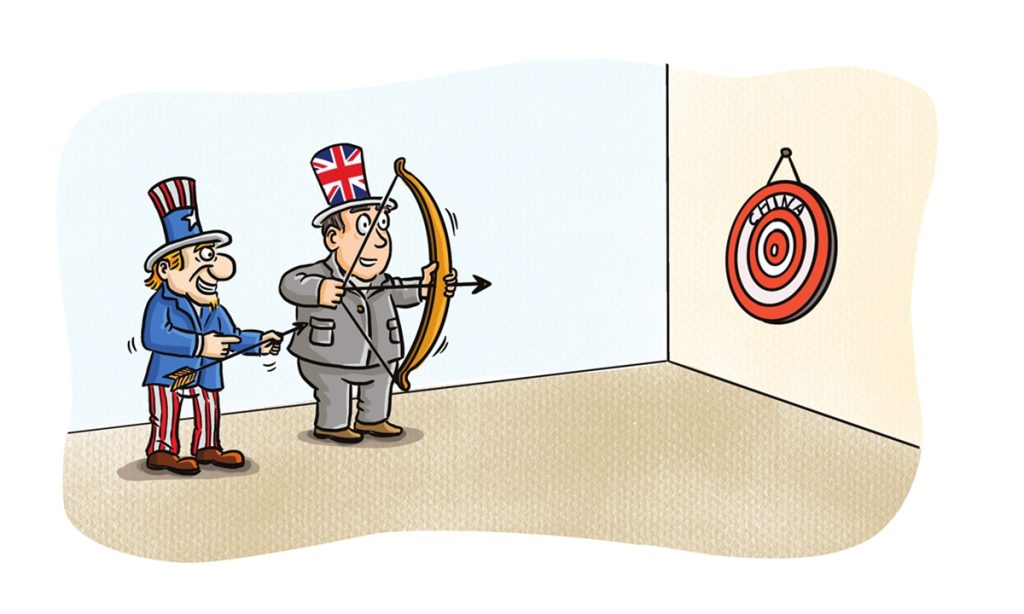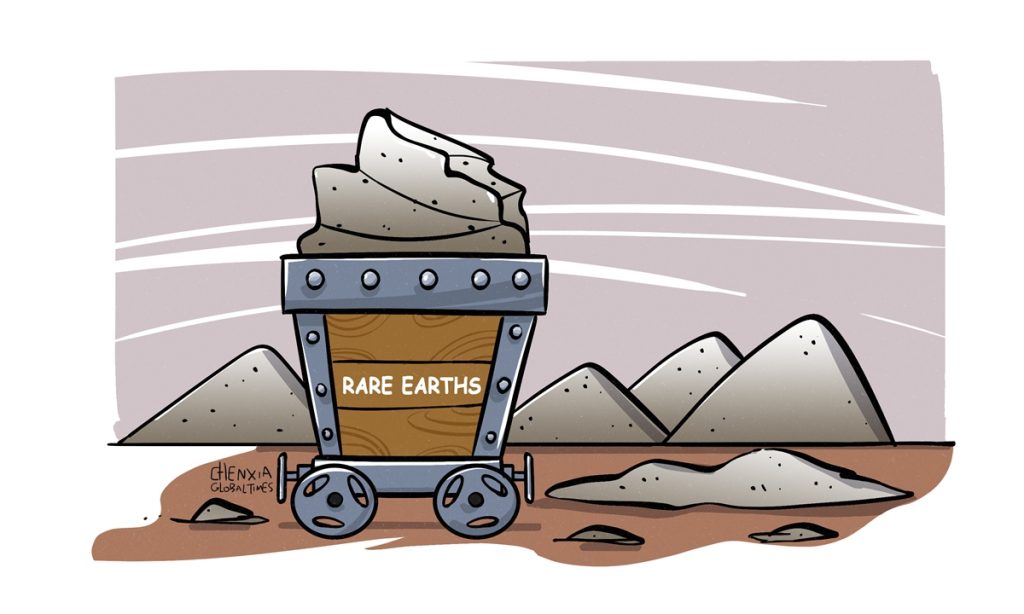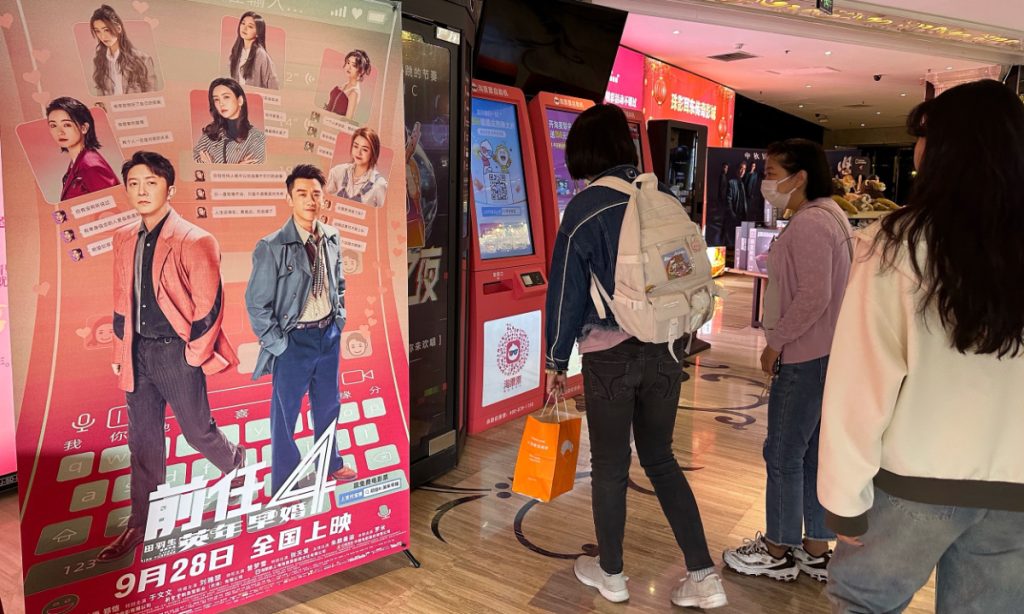Insiders reveal the truth behind hastily released IAEA report on Japan’s radioactive water dumping plan
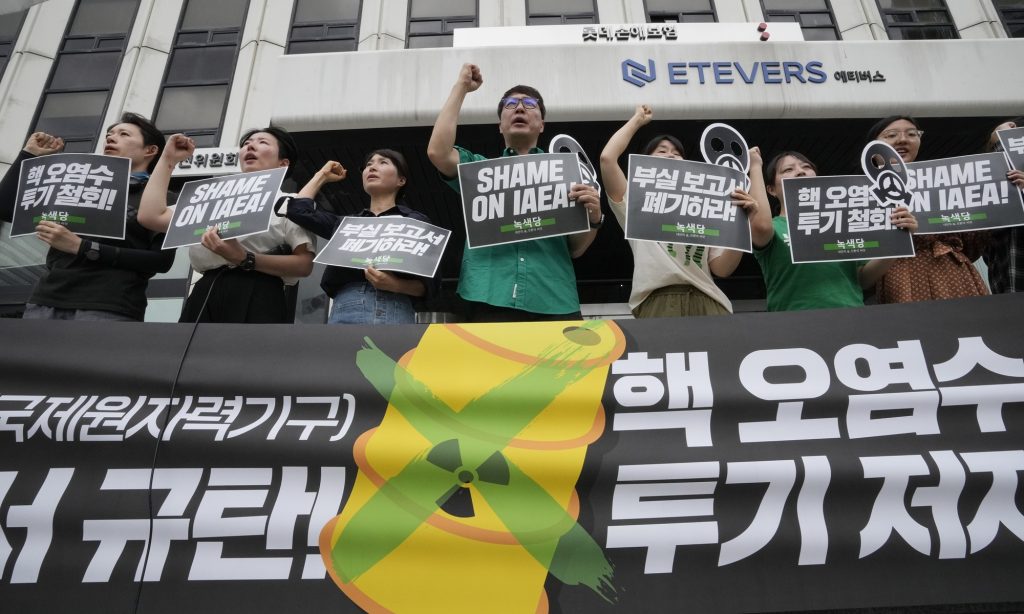
On July 4, the International Atomic Energy Agency (IAEA) published a report announcing that Japan's dumping plan meets the IAEA's safety standards.
Several days after the report was released, doubts are mounting. It also sparked a strong backlash in countries that will be impacted by the scheduled dumping.
Several sources and industry experts involved in the project revealed to the Global Times Japan's intent to create "reasonableness" for the plan to be well received. In their view, despite Japan's calculated efforts to create a narrative of harmlessness around its intended plan, the risks associated with the dumping of nuclear-contaminated wastewater from Fukushima are real. From the perspective of the interests of all humankind, there should have been better options considered, but Japan has disregarded them and chosen the most favorable approach for itself.
Unproven safety
As an independent intergovernmental organization within the United Nations system, the conclusions reached by the IAEA are often seen as inherently authoritative. The Japanese government also intends to use the IAEA's report to legitimize Japan's dumping of nuclear-contaminated wastewater into the ocean.
However, as stated by Chinese Foreign Ministry Spokesperson Wang Wenbin, the agency's report cannot serve as a "shield" or "green light" for Japan's dumping plan. Several industry insiders and experts expressed the same view in recent interviews with the Global Times, saying that the conclusions of the IAEA assessment report cannot provide a stamp of approval for the safety of the plan.
Regarding the released report by the IAEA, the China Atomic Energy Authority (CAEA) and the Ministry of Ecology and Environment have recently raised questions about its content. They believe that there are many issues concerning the legitimacy of Japan's ocean discharge, the reliability of the purification system, and the completeness of the monitoring plan.
Deng Ge, secretary general of the CAEA, noted that according to the IAEA report, the Advanced Liquid Processing System (ALPS) method used by Japan cannot remove all radioactive nuclides from the nuclear-contaminated wastewater. Based on previous operation results, it has been proven that ALPS method is ineffective in removing radioactive nuclides such as tritium and carbon-14. The effectiveness of ALPS in removing other radioactive nuclides also requires further testing and verification through experiments and engineering.
According to data released by Japan itself, over 70 percent of the wastewater treated by ALPS does not meet discharge standards and requires further purification. During long-term operation, the performance and reliability of ALPS will further deteriorate due to equipment corrosion and aging. But Japan has not demonstrated the long-term effectiveness and reliability of the water purification system.
An insider familiar with Japan's dumping plan revealed to the Global Times that the current plan and assessment in Japan are based on the assumption that the treated wastewater will meet the standards. Unfortunately, according to data previously released by the Tokyo Electric Power Company (TEPCO), the operator of the Fukushima plant, even after treatment through ALPS, about 70 percent of the treated contaminated wastewater does not meet the set standards, with 18 percent exceeding the standards by 10 to 20,000 times. Additionally, the frequent malfunctions and component damage of ALPS raise doubts about its capability to treat the nuclear-contaminated wastewater.
The insider further stated that it is uncertain whether the situation would improve if the water undergoes a second round of ALPS treatment. The plan provided by TEPCO does not explain how to ensure that the treated wastewater will meet the discharge requirements, nor does it include an analysis of the impacts of the discharge.
Publicly available data showed that TEPCO only retreated 0.25 percent of the nuclear-contaminated wastewater, without disclosing the time required for the second treatment or explaining the plan for the second treatment.
The accuracy and reliability of the data released by Japan on the contaminated wastewater have also been questioned by numerous parties. Deng stated that TEPCO has repeatedly concealed and tampered with data on the nuclear-contaminated wastewater. Japan unilaterally approved the dumping plan and accelerated its implementation, putting pressure on the IAEA's review and assessment through various means.
The IAEA conducted its review and assessment based solely on the data and information provided by Japan, with only a limited number of samples of the nuclear-contaminated wastewater collected unilaterally by Japan for laboratory comparison and analysis. The authenticity and accuracy of the data are yet to be verified, and the sampling independence and representativeness are severely lacking. Therefore, even if the IAEA's review and assessment conclude that the discharge complies with international safety standards, it lacks sufficient persuasiveness, according to Deng.
Regarding sampling and monitoring, TEPCO initially only sampled and monitored nine nuclides other than tritium in the contaminated wastewater, which was later adjusted to 29 nuclides in 2023. However, considering the complex composition of the contaminated wastewater from Fukushima with its high salt content and various impurities, this is still far from sufficient, according to the insider.
"TEPCO's actions have introduced significant uncertainties in the source information of the nuclear-contaminated wastewater, thereby greatly increasing the difficulty of formulating subsequent monitoring plans and assessing the impact on the marine ecosystem," said the insider.
Even if the assessment report by the IAEA concludes that Japan's plan to dump nuclear-contaminated wastewater meets international safety standards, risks still remain.
Wei Fangxin, a researcher at the Center for Nuclear and Radiation Safety at the Ministry of Ecology and Environment, told the Global Times that the radiation safety standards established by the IAEA set the public dose limit at 1 milliSievert per year. However, even if the dose is below 1 milliSievert, there are still risks of radiation exposure.
"It's like a highway speed limit of 100 kilometers per hour. It doesn't mean that driving below 100 kilometers per hour is absolutely safe," the expert said.
Wei also pointed out that there are many nuclides in the contaminated wastewater from the Fukushima nuclear power plant, making its treatment challenging. Each treatment technology has limitations and can only handle specific types of nuclides, while other nuclides or impurities can affect the performance of the treatment equipment.
Over time, the performance of the treatment system deteriorates, and the treated water may have excessive levels of radioactivity, he said.
"In the long run, the people in neighboring countries and regions to Japan will undoubtedly be adversely affected by the dumping of the nuclear-contaminated wastewater. Regardless of how small the radioactivity of the contaminated wastewater may be, it still poses certain risks." Wei noted.
Mounting doubts
As early as on July 4, Mao Ning, Chinese foreign ministry spokesperson, said that the report would "not prove the discharge is legitimate and justified and exempt the Japanese side from its due responsibilities and obligations under international law."
Liu Senlin, an expert with the China Institute of Atomic Energy, who participated in the IAEA's technical working group for the assessment, told the Global Times that the report, released in the name of the IAEA director general, was released without sufficient consultation with the experts in the technical working group.
He believes that the report released by the IAEA does not represent the IAEA's recognition of the legitimacy of Japan's decision to dump the treated wastewater into the ocean, nor does it represent the IAEA's approval or authorization of Japan's dump of nuclear-contaminated wastewater.
Liu mentioned that the report was released in the name of the IAEA director general Rafael Mariano Grossi. Although the IAEA Secretariat had sought opinions from the technical working group's experts on the draft report before its release, the time given to the experts was very limited, and their opinions were only for reference, with the decision on whether to adopt them being made by the IAEA Secretariat.
After receiving feedback, the IAEA Secretariat did not initiate a discussion or reach a consensus with the experts on the modification of the report or the adoption of the opinions before its hasty release, according to Liu.
Liu revealed that during the last two years of evaluation tasks, experts from various parties in the technical working group extensively and deeply discussed technical issues related to the Japanese government's responsibilities and functions in the discharge of treated contaminated wastewater, key principles and safety objectives, authorization procedures, source characterization, safety issues of the discharge system and process, evaluation of radiation environmental impact, source monitoring and environmental monitoring plans, occupational radiation protection, public consultation, and the involvement of relevant parties. "There were both consensuses and differences of opinion, and a unanimous agreement was not reached."
On the one hand, the IAEA's review and evaluation effectively raised the technical threshold and regulatory requirements for Japan's dumping of nuclear-contaminated wastewater; on the other hand, there were significant limitations, such as not addressing the international community's concerns over the legitimacy of Japan's decision to discharge, and not having sufficient discussions and arrangements for subsequent review and assessment tasks, and long-term monitoring plans.
"The IAEA plays the role of an assessor, rather than a decision-maker, in the issue of the disposal of nuclear-contaminated wastewater in Fukushima, Japan," Wei said.
"From the perspective of the IAEA, its release of the comprehensive assessment report stating that Japan's plan for discharging nuclear-contaminated wastewater 'meets international safety standards' can only be understood as the plan being feasible. However, feasibility does not imply that the plan is the optimal solution, and there are still many questions that Japan has not answered," he noted.
When Japan requested for an IAEA assessment of its disposal plans, it did not submit all feasible options for evaluation. Instead, it submitted the discharge plan that was most favorable to its interests. This assessment itself has limitations and biases, the expert said.
South Korean media revealed on June 21 that the Japanese government made a political donation of more than 1 million euros ($1.10 million) to the IAEA in order to resolve differences of opinion between the IAEA and third country experts. But it was later denied by Grossi and the Japanese government.
"From the perspective of the IAEA's assessment results, its position clearly leans more toward the Japanese government," said an anonymous expert close to the event.
Firstly, the IAEA itself is also eager to resolve the issue of Fukushima's nuclear-contaminated wastewater as soon as possible because one of its mandates is to promote the peaceful use of nuclear energy globally, he said.
The other reason is that Japan has significant influence within the IAEA. From the information available to us, there are many Japanese nationals serving in the IAEA, and this trend has continued in the last decade, according to the expert.
"The Japanese government is active in this issue and financially supports sending experts or advisors to serve in or provide services to the IAEA. From the perspective of the IAEA, enjoying free professional services is certainly welcomed. From Japan's perspective, it expands its influence and discourse power within the IAEA through this approach," he said.
Simplest way
In the implementation of the dumping plan, Japan has been unable to prove the legitimacy and legality of its decision throughout the process. This is one of the reasons why they requested an evaluation and assessment from the IAEA.
In this regard, Japan's actions have revealed a lack of long-term responsibility in addressing the issue and have instead revealed a need for a temporary rather than a long-term solution.
According to the CAEA, Japan deliberately restricted the authorization of the IAEA's technical working group, limiting review and assessment to only one disposal option, while excluding other possible alternatives. Even if the IAEA considers the discharge to be in line with international safety standards, it does not prove that it is the only or best solution for the disposal of the contaminated wastewater.
"Now, by releasing the contaminated wastewater into the open sea, it is the simplest and least burdensome approach for Japan, reducing economic costs and minimizing harm to its own territory. However, it potentially poses risks to neighboring countries, effectively transferring their own risks to others," Wei said.
